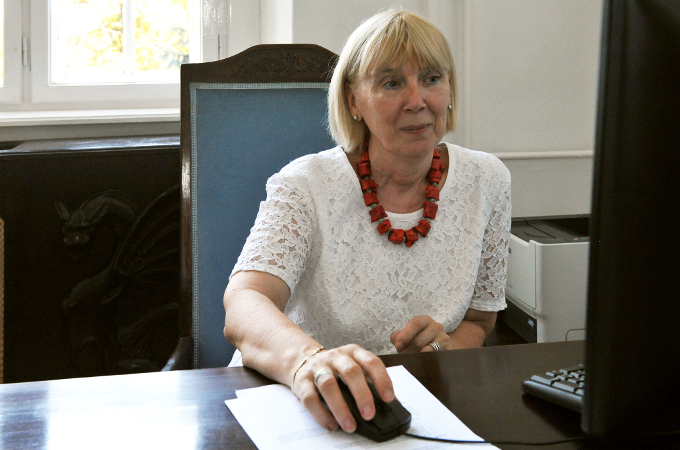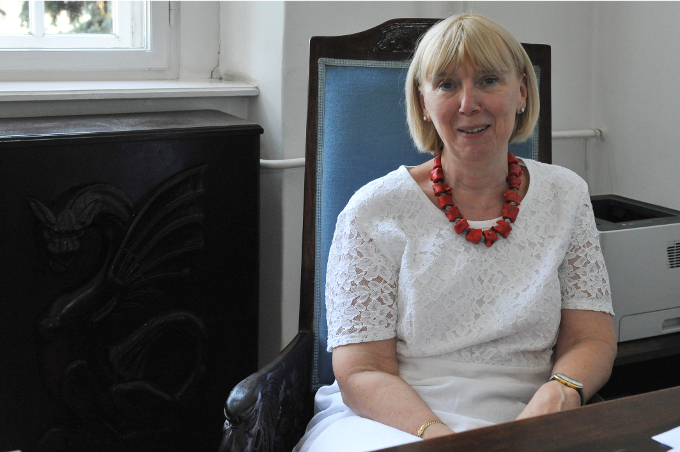News feed
Experience gained abroad becoming the norm for students
2017. 10. 04.Next year’s scholarship programmes for BME students soon to be published.
Your chances of finding a job are much higher if you have study, internship or work experience gained abroad, since an increasing number of employers check the job applications of young graduates for such evidence, stressed BME’s vice rector, pointing out the importance of foreign scholarships. Krisztina László added: these scholarships not only help students get to know another country, culture, language and ways of communication, but they can also acquire skills and abilities which they can utilise back home during their studies and for their professional growth. These programmes not only expand the students’ knowledge, but also create networking opportunities, she added. The Vice Rector underlined that international travel is easier than ever and global efforts for the internationalisation of higher education create a favourable environment for student mobility.
Talking about the soon to be published scholarship programmes she said: the most popular is ERASMUS+, which is turning 30 this year. 4-5 thousand BME students take advantage of this mobility scheme every year to study in higher education institutions in one of the EU countries or the programme’s other participating countries for 3-12 months. The students of the Budapest University of Technology and Economics can choose from 650 exchange programmes at 300 universities. The areas of sciences taught and the number of exchange students are specified in continuously updated bilateral agreements. She also mentioned that the recognition of credits earned abroad was possible once the student returned home.
Krisztina László said: every faculty has its own favourite destination, but the overall ranking is led by Germany and Spain. One of the reasons for this is the large number of bilateral agreements signed with these two countries. The ERASMUS+ also offers grants for internships, she explained.
The Vice Rector for International Affairs also mentioned another European mobility programme, Campus Mundi. It is an excellence scholarship programme, similar to ERASMUS+, but setting higher expectations in exchange for a bigger grant. Campus Mundi also offers an opportunity for those with an active student status to travel even outside of Europe. BME has bilateral agreements with several universities in America, Australia and Asia. “Our goal is to continuously increase the number of these agreements”, the Vice Rector for International Affairs stressed.
Krisztina László also talked about the available short-term scholarships. Describing the benefits of CEEPUS (Central European Exchange Programme for University Studies) she said: students have the opportunity to study at Central European universities and colleges (including West Balkan countries which are not EU members) and the credits they obtain will be recognised at home. They can not only apply for 3-5-month long semesters as an exchange student, but also for short-term student mobility scholarships of 1-2 months to collect material for their thesis.
The ATHENS programme (Advanced Technology Higher Education Network/Socrates) enables students to attend one of the week-long intensive courses (total of 30 hours) offered by the network universities. The ATHENS Network is made up of 14 leading European technological universities. It has been offering week-long courses since 1997, organised twice in an academic year with the opportunity to collect 1 credit per course. Although students have to finance their travel, accommodation and related costs, the course itself is free and each faculty provides some financing towards the participants’ expenses.
As for future plans, the BME’s lecturer explained that the most important change concerned the expansion of double-degree and joint programmes, which actually top the “marketability ranking” of diplomas. These options could be especially useful to masters and doctoral students. Krisztina László added that new joint programmes are being developed with the Karlsruhe Institute of Technology and the Graz University of Technology. “The joint programmes allow students to study and eventually obtain their degrees according to the synchronised curricula of the two partner universities. They can learn about the same topic from different perspectives and find solutions to professional problems by using different approaches, while acquiring competitive knowledge”, she explained. Budapest University of Technology and Economics is a member of the organisation called T.I.M.E. (Top Industrial Managers for Europe), which specifically organises such programmes. A further goal is to make this programme available for BME’s students.
Krisztina László’s opinion is that in today’s globalised world professional experiences gained abroad as an undergraduate represent a significant competitive edge both in the domestic and the international labour market. “They are becoming an integral part of the students’ knowledge”, she added.
Further information about the available scholarships.
GI - BK
Photo: János Philip


